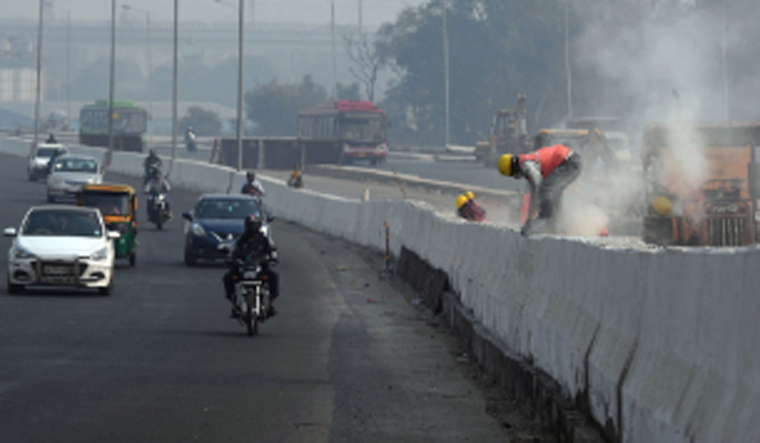In what could be the first such endeavour in the country, the Delhi government on Thursday presented a 'green budget', which is aimed at controlling pollution, and involves a number of programmes that are intended to be rolled out in a time-bound manner.
The Arvind Kejriwal government projects the thrust on curbing pollution in the budget as its third biggest initiative in governance after the steps that it has taken in the fields of education and health.
Unveiling the green budget, Deputy Chief Minister Manish Sisodia, who also holds the finance portfolio, said in his budget speech at the Delhi Assembly, “We are going to thread 26 programmes and schemes of transport, power, environment and PWD for devising a unified system of pollution control, bringing down levels of different pollutants.”
Among the initiatives listed under the green budget are procuring 1,000 electric buses, introduction of 905 feeder electric buses meant for last mile connectivity from Metro stations and expansion of eligibility criteria for e-rickshaw subsidy. There will soon be a policy to curtail pollution from commercial taxis and vehicles.
The green budget envisages a real-time source apportionment study of air pollution, developing a model for forecasting of air pollution scenario and setting up 1,000 indoor display panels inside all government buildings dealing with the public to display information on air pollution levels.
The budget provides for subsidies to restaurants to replace coal tandoors with electricity- or gas-based tandoors. Subsidy will also be offered to switch over from diesel generator sets with capacity of 10 KVA or more. An incentive of Rs 1 lakh will be given to industries to switch over to piped natural gas.
Delhi's budget for 2018-19 has been pegged at Rs 53,000 crore. It is 19.45 per cent more than the revised budget estimate of Rs 44,370 crore for the previous financial year. The budget has gone up by 1.5 times in the last three years.
Sisodia, in his budget speech, highlighted that 26 per cent of the budgetary allocation is towards education. It is for the third consecutive year that education is getting around 25 per cent of the budget allocation. As much as 12 per cent of the budget has been allocated to health. Eleven per cent of the budget will be dedicated to infrastructure development.


